A water quality survey held around Nanded village, the epicentre of Guillain-Barre Syndrome (GBS) in Pune city, has found there was lack of chlorine in the drinking water supplied to households of 26 patients of this nerve disorder, officials said.

GBS is a rare condition that causes sudden numbness and muscle weakness, with symptoms including severe weakness in the limbs.
On Tuesday, three fresh cases of GBS were reported in Maharashtra's Pune city, taking the overall tally to 166, they said.
Officials of the Rapid Response Team (RRT), formed to probe the outbreak of the GBS cases in Nanded and adjoining localities in Sinhagad Road area, said there were 77 GBS patients in Nanded. Of them, the households of 62 patients were visited to take the drinking water samples.
The findings of the house-to-house survey about lack of chlorine in drinking water was discussed in the RRT's meeting.
Experts have now urged the Pune Municipal Corporation's (PMC) water supply department to take immediate action to maintain chlorine level of 0.2 ppm (parts per million) in the household water supply to ensure public health safety.
"While water at the source (well) was found to be adequately purified with sufficient chlorine levels, zero chlorine was detected in households of 26 patients out of 62," an RRT member said.
The water supply department should take immediate action to maintain a minimum chlorine level of 0.2 ppm in household water supply, he said.
Last week, Maharashtra Health Minister Prakash Abitkar said 80 per cent of the suspected GBS cases in Pune have been reported from areas located around a mega well in Nanded.
He had noted that high number of cases in certain areas appeared to be linked to suspected water contamination.
When contacted, PMC's water supply department head Nandkishor Jagtap said the water from the well (in Nanded, which supplies to four to five villages) is adequately purified with sufficient chlorine levels.
"The reasons for zero level of chlorine level could be that the households must be sourcing water from other sources, such as private tankers or non-cleaning of overhead water tanks at the residential society or individual household," he said.
There is another reason that if the water is stored in large quantities, the levels of chlorine could go volatile, the official said.
Jagtap said his department also collected samples in which chlorine was not found in some and Escherichia coli or E. coli bacteria was found.
"After we found E. coli in some of the water samples collected from the tankers, their operators have been issued notices and they have been instructed to use bleaching power solutions provided by the PMC to ensure the bacteria is contained," he said.
Some of the private water ATMs were seized after E coli was found in their samples, he added.
Meanwhile, Dr Radhakishan Pawar, deputy director of the state health department and chairman of the RRT, said the outbreak of GBS is subsiding now.
"There are around 165 cases, of which 77 are cluster cases which are from Nanded village area. The remaining cases are from other parts of Pune and other districts and they are not epidemiologically related to Nanded area," he said.
"We consider these 77 cases in Nanded and adjoining areas as an outbreak as they are more than normal and accordingly, the investigations and sample collection of water, stool, poultry, food was going on," Pawar said.
A decline in the number of GBS cases has been observed now, he added.
"There was a peak around January 18 and 19 but now a decline has been recorded," he said.
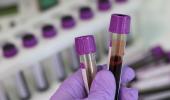
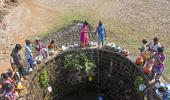
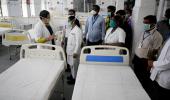
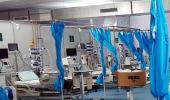






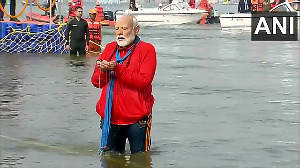
 © 2025
© 2025